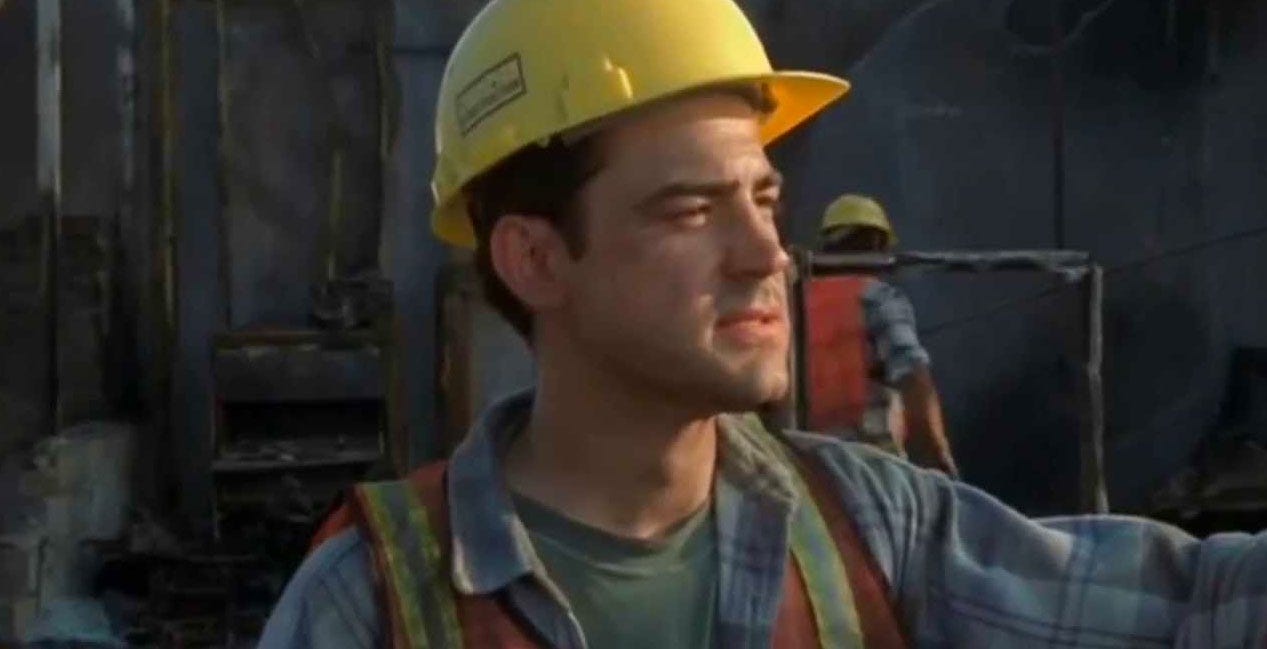Investing in Responsibility
How increasing responsibilities propels you to become a better man.
In my conclusion last week, I put forward the idea that you cannot become a man without making prudent sacrifices. As I was writing, I noticed a theme: that these sacrifices often necessitate taking on a responsibility. Here, I want to expand upon the relationship of sacrifice and responsibility by making the case for embracing responsibilities.
Responsibility is a propellant that supercharges your growth as a man. Rather than a burden to be feared, responsibility is an honor that strengthens as it glorifies. It confers status as it puts you under obligation. It confers rights due to that newfound status. These are key components to the structure of responsibility.
First, responsibility carries an apparent paradox of elevating one’s status while seeming to put one under increasingly onerous demands of service. The paradox is apparent because we perceive servants as low, beholden, and bereft of their freedom whereas those in highly responsible positions are seen to have high status.
A king, for example, enjoys high status and the marks of it. Yet, a bad king is one who exercises his status in such a way that he uses it selfishly. A good king is one who uses his status rightly, as a servant. Not only that, but due to his status, the king has the obligation to serve. Responsibility confers status at the same time it confers servitude. This is precisely what the Lord means in Matthew 20:25-27:
Jesus called them together and said, “You know that the rulers of the Gentiles lord it over them, and their high officials exercise authority over them. Not so with you. Instead, whoever wants to become great among you must be your servant, and whoever wants to be first must be your slave.
This betrays that the seeming paradox between service and status is false: rather, status is proportional to the scale of one’s service.

Yet, this apparent paradox can make a man run from responsibility for fear of losing his freedom, especially in a liberal society which values freedom as the highest good. Instead, a young man needs to understand that there is greater status to be gained through serving and taking increasingly consequential responsibilities.
The second point to establish is that as responsibility imposes obligations of service, it confers proportional rights. Continue the thread from above: the king is imposed with a grave obligation of total service to his people, but according to his level of obligation he is afforded many special rights: the right to wear a crown, the right to pardon, the right to declare a public holiday, for example.
This effect is what elevates a man to headship over himself first as he advances from boyhood to self-reliance, then over his family as others depend on him, and finally over anything else for which he is responsible whether that be a business, a political office, or a social obligation.
I want to impress that I’m not suggesting responsibility itself confers masculinity, but that as a man takes on responsibilities, he is afforded more rights which help him advance into manhood.
Responsibility increases status through service and adds rights in proportion to obligations. With this understanding of the structure of responsibilities, let’s look at how they give your climb into manhood an inexorable inertia, three reasons it should be something a young man seeks out.
Responsibilities confer certain rights which are necessary build up one’s manhood.
Without taking on responsibilities, a man will not accrue the rights which allow him to advance. Look at it in economic terms: to become a man today you need to make money. The modern world is completely economized. Modern rites of passage are necessarily linked to money. Owning and operating a car is a definite and consequential step in a young American’s journey from dependence to autonomy.

A boy must become responsible enough to earn the cash that will allow him to start acting like a man. He has to get up, be on time, put in the work, maintain his network, manage his income and expenses, pay for the short term while keeping his other eye on the long term. That responsibility gives his life structure. It shapes him into something more like a man.
Outside the economic dimension of providing, responsibility confers another important aspect of manhood: the ability to have a family. Generally speaking, the ability to attract the confidence of and further provide for a woman and dependents is indicative of a man who is sufficiently responsible. Such a relationship is a particularly onerous responsibility to navigate. It’s not a ‘Tier One’ responsibility like getting to your fast-food job on time so you can pay for gas.
A marriage is a significant relationship that has many pre-requisite responsibilities, not least the economic ones listed above. Not only do you have your own schedule and finances to maintain, you have an emotional relationship with another person to handle on top of it all. Then, you might start having some children who demand even more of you. All of this will add up to more than 100%. It’s supposed to.
Your Capacity for Responsibility is Far Deeper than You Think
Your 100% grows as you do. Like any other muscle, the more responsibilities you handle, the more you can pile on. This is where it’s important to ‘rise to the occasion’. The reps where you grow the most strain you the most.
I can’t remember the source of the quote, but I heard an anecdote of a young 20-something man walking into a job interview and making such an astute observation that he earned the job on the spot. He told the interviewer,
“I’m a young man. And to become the man I need to be to succeed in life, I need to take on more responsibility to expand my capacity for it.”
The key to this quote is the young man’s recognition that his capacity is not finite. Each successive responsibility prepares you to fulfill the next one. This is where responsibilities yield compound returns, this is where they build that inertia I mentioned above.
Responsibility Yields Compounding Returns
Responsibility spurs action. Men are made for action. You are made to decide, to build, to serve, to inspire. Responsibilities propel you to do these things. In the beginning it may be out of necessity. You may just be rising to the occasion.
Later, you might grow to discover your strengths and undertake deeper responsibilities in one area. Maybe you take a job in a field you didn’t envision yourself working in just to pay the bills for your family- just to fulfill a responsibility.
There, you discover a talent for sales which turns into a satisfying and lucrative career. You may even become a mentor to others in the field. These are discoveries you find downwind of taking on a responsibility. They are a result of the inertia started by a lifetime of accountability.

Furthermore, responsibility builds your self-esteem. This is one of the boons of the status and rights responsibility confers. You feel valued- rightly, because you are valuable. A responsible man fills a role for others which nobody else can do, and you see the impact you have in the lives of those around you.
This is the process through which responsibility forms a man out of a boy. As a boy takes on responsibilities, he begins to take on rights as well. These rights and responsibilities confer status as he expands his capacity for more and greater ones. With this inertia, he is propelled on a journey of self-discovery as he fulfills his roles.
Many young men tend to run from responsibility. They see the rights that come with responsibility but might fear what they cost. They doubt the payoffs of becoming a more responsible man, or they simply don’t desire the challenge. So they put it off. This is the core of the oft-discussed issue of modern males staying in ‘boyhood’ late into life. They don’t feel the need. In many cases, they’re unfortunately not being asked to become men of responsibility.
As much for me as any of you, my aim in laying out this case for responsibility is to show that taking responsibility is a worthwhile pursuit. Especially in a culture which values freedoms absolutely, it can be difficult to perceive that sacrificing freedom for responsibility is a sensible trade. Responsibility grants status and rights, which freedom does not. To become the man this society desperately needs, you need to become a responsible man. Expand your capacity, let the inertia propel you to greater heights of service and status, and never look back wondering if freedom was a kinder, easier way.



